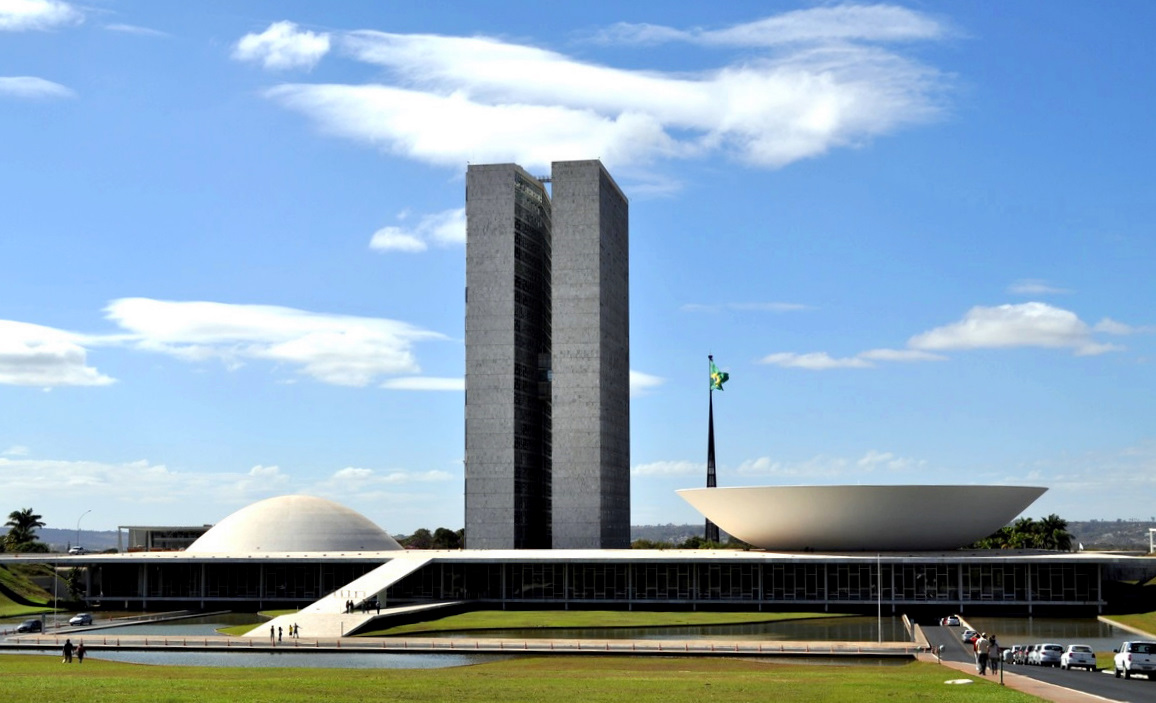RIO DE JANEIRO, BRAZIL – The capture of public money by parliamentary amendments in Brazil is unparalleled compared to other countries. Brazilian deputies and senators interfere up to 20 times more in the Budget than members of the Organization for Economic Cooperation and Development (OECD), a group the country wants to join.
According to a study by economist Marcos Mendes for the Millenium Institute, the amendments represent 24% of the ministries’ expenses and investments this year, the discretionary spending. This portion refers to non-mandatory expenses, which include spending on maintenance of public agencies, payment of electricity bills, environmental monitoring, and investments in schools and roads.
The study shows that, in comparison, Brazilian legislators interfere much more in the Budget, spreading public resources to electoral strongholds freely and without objective criteria.

For Mendes, this situation shows a lack of planning, an absence of connection with public policies at a national level, and opens the way for corruption, as demonstrated by the suspicions recently revealed by the newspaper Estadão regarding the use of funds from the National Fund for Education Development (FNDE).
Another factor is the degree of detail of the indications. In Brazil, lawmakers can change the proposal forwarded by the Executive and determine the sending of funds to specific cities and works (the construction of a square, for example). In Latin America, this level of detail only occurs in Chile, where parliamentarians also send funds for works in specific locations, according to OECD research cited in the study. Only there, Congress cannot increase spending, only reallocate it.
In other countries, parliamentarians can promote more comprehensive spending changes (directing more money to health and less to the payment of salaries), but the final choice of where the money goes lies with the Executive.
In Uruguay, Peru, Ecuador, and Guatemala, funds can be directed to ministries. In Paraguay, Panama, Mexico, Costa Rica, and Bolivia, the money can be destined to government programs, such as basic sanitation or income transfer.
“In Brazil, the detailing generates a substantial fragmentation of resources and impedes planning. The electoral interest of the congressman is not necessarily the interest of the municipality. He may have a personal interest, collusion, and be interested in favoring a supplier, not the municipality itself,” said Mendes.
Congress advanced in the control of the budget, taking advantage of the political fragility of the governments. The imposing amendments were approved during the Dilma Rousseff administration before the impeachment process. The secret budget, revealed by Estadão, was created at the beginning of Jair Bolsonaro’s mandate as a bargaining chip for the president’s political support.
ADVANCEMENT
Until 2014, the government was not required to spend the budget amendments. It changed in 2015 when the Legislature made individual amendments, those indicated by deputies and senators, imposing.
In 2019, the bench amendments, put forward by all the members of parliament from each state, gained the same status. That year, the Legislative changed the Constitution to make the entire execution of the Budget mandatory. Congress also created the rapporteur’s amendments at the heart of the secret budget. The special transfers, nicknamed “blank checks,” pass funds to mayors and governors for free use without federal oversight.
The congressional command argues that the expansion of parliamentary amendments is legitimate. The president of the Senate, Rodrigo Pacheco (PSD-MG), told the report that the “budget is public and its preparation and allocation, transparent. The president of the House, Arthur Lira (Progressives-AL), did not want to comment.
The changes gave political power to Congress, especially to the parties of the Centrão, which now occupy key positions at the top of the government and also in the Legislative. Last week, Bolsonaro, when talking about the budget, admitted that the amendments helped calm Congress.
“The model not only opens space but encourages corruption,” said Mendes, who was the creator of the spending cap – a rule that limits the growth of expenses to inflation. “The amendments plaster the budget and unbalance the balance because members of Congress have too much power to spend without responsibility for fiscal stability, which falls on the shoulders of the president and the economy minister.”
In addition to changing the rules, the change translated into an increase in the value of the amendments. In 2014, they represented R$8.7 billion (US$1.9 billion) in public accounts. This amount has risen to nearly R$36 billion this year.
In the last four years, Congress approved, on average, 7,733 parliamentary amendments. In 2022, 3,563 nominations – more than half of the total – were aimed at specific localities (municipality or state), to the detriment of nationwide actions.
UNITED STATES
By the same counting criteria, the United States approved 285 amendments in 2021, which represents only 2.4% of total spending. “What Brazil does is an aberration and ends up greatly compromising the issue of democracy. We need to end the amendments or reduce them a lot. The Executive should make this allocation, and the congressman should be responsible for inspecting it,” said the executive director of the Millenium Institute, Marina Helena Santos.
Mendes suggested the end of the individual, bench, and rapporteur allocations. He defended the committee amendments, by which deputies and senators can only indicate resources for actions of national scope and for the areas they represent, such as health, education, and public safety, which would increase the quality of transfers.
The proposal was formally presented by House consultants Helio Tollini and Paulo Bijos in 2021 but is contrary to what Congress has been doing in practice. “It’s going to be very difficult to reverse this,” he said.
With information from Estadão

